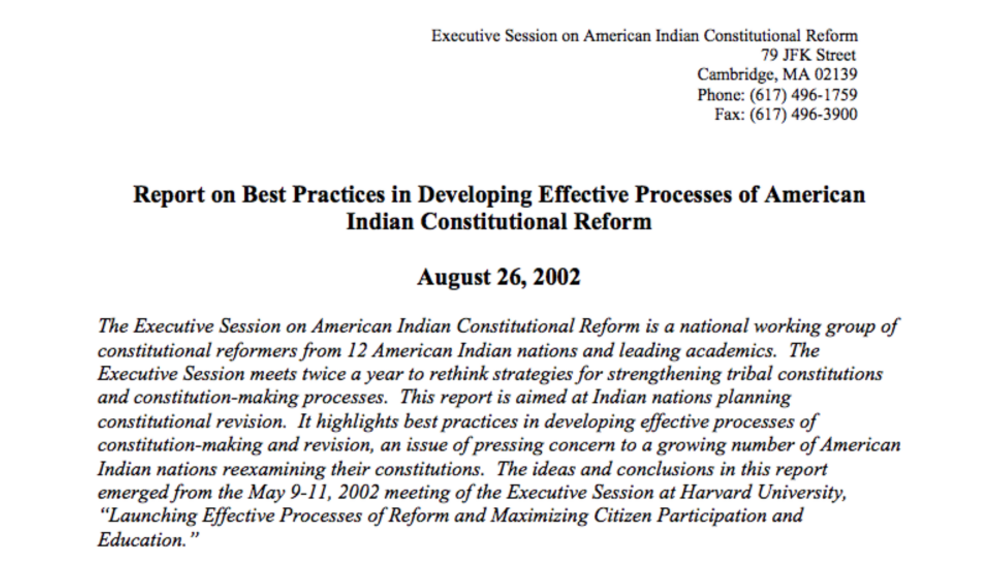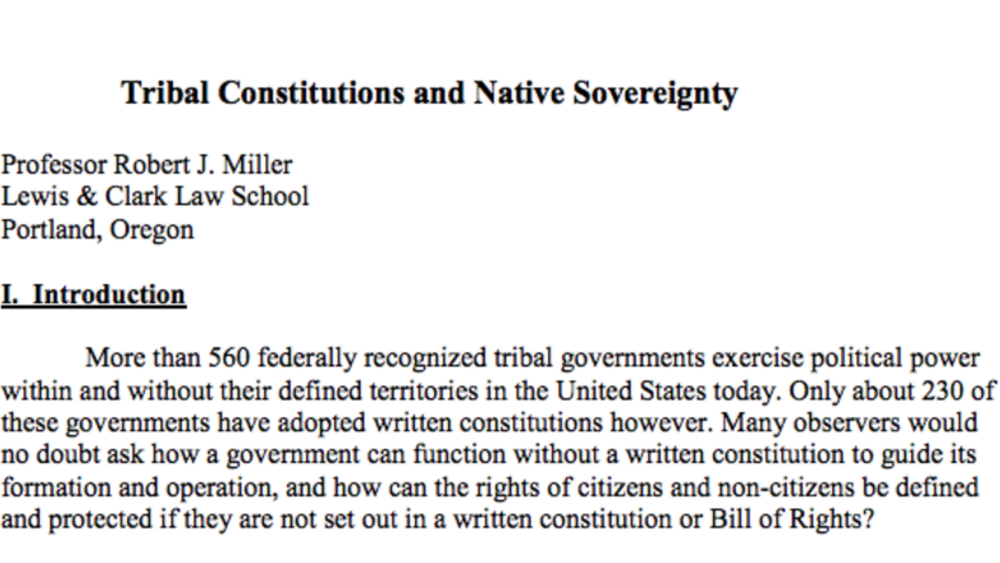In this highlight from the presentation "The Diversity of Governing Systems and Constitutions in Indian Country," NNI's Joan Timeche explains the two tests (cultural legitimacy and effectiveness) that Native nation constitutions must pass if they are going to prove capable of achieving their nations' strategic priorities.
Additional Information
Timeche, Joan. "The Two Tests a Constitution Must Pass (Presentation Highlight)." Tribal Constitutions seminar. Native Nations Institute for Leadership, Management and Policy, University of Arizona. Tucson, Arizona. April 3, 2013. Presentation highlight.
Transcript
"As you look through your constitution, no matter how diverse it is, it has to pass two tests -- the legitimacy test and the effectiveness test. And that first one is what causes a lot of turmoil oftentimes in our communities. Do the people believe this way of governing is appropriate for them and do they see that system as theirs? Or do they see it as the BIA's [Bureau of Indian Affairs's] or the Department of Interior's because the IRA [Indian Reorganization Act] was forced upon us? Is that constitution yours? Do people say, 'Yes, this is the way we make decisions. This is what's important to us. This is how we make rules. These are our rules.'
And the second one is the effectiveness. Can it deliver on getting the job done to meet your needs and your goals? Those are what's going to be important or does it always...does it become a big bureaucracy, do you get hung up on things, is the system...or maybe there's no rules in there or maybe there are rules there but they're not enforced. So you have to make sure that your constitution can meet these two tests. And we're not saying that any one form of government is best, because you're going to have to make that determination of what's best for you and your people, but it should be the one that solves your governance challenges. It's the one that's going to promote your interests, it's going to be the one that's going to hold you together, and then it's the one that's going to match your current culture today. 'Cause we're never going to go back to what we were 50, 100, 200 years ago, but we still probably have threads of how we make decisions that are still culturally relevant. So what is that today? And you just have to figure out what's the best way for our nation."



